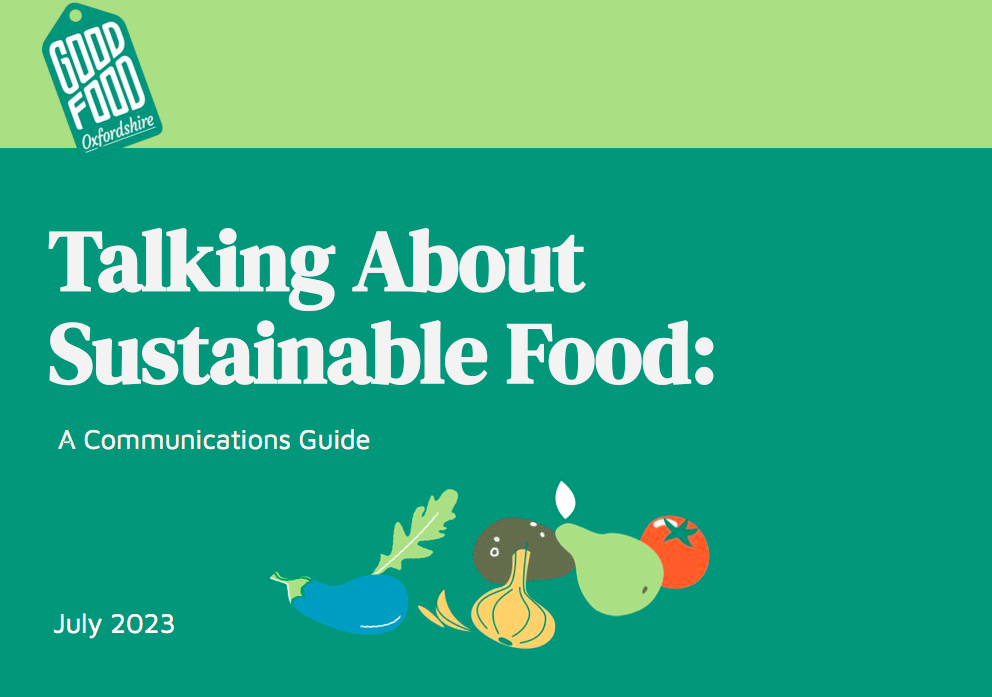The global food system is a major driver of climate change. According to research cited in the National Food Strategy, food production accounts for one-quarter of the world’s greenhouse gas emissions and takes up half of the planet’s habitable surface, and biodiversity of priority species has fallen more than 70% since 1970 (Dimbleby 2021).
Due to statistics such as these, there is a growing understanding that we need to transform how we produce and consume foods to promote better human and planetary health, however there is some debate about the dietary changes that can help us to achieve this. And whilst there is clear evidence on the environmental impact of livestock production, simply asking people to stop eating meat can be contentious and highly emotive.
At a local level, the Oxfordshire Food Strategy sets out a vision in which everyone in Oxfordshire can enjoy the healthy and sustainable food they need every day. A priority area, to help reach this vision, is to ensure that we are wasting less food, and that the food that we do produce and consume has less negative impact on the planet.
So how, exactly, can we effectively encourage people to make food-related shifts that have better outcomes for both our health and our planet? How can we speak positively about ways in which to shift to more sustainable diets which help both our health and the planet?
We’ve developed a new Communications Guide which sets out ways to have positive, helpful conversations about sustainable food. The toolkit is aimed at anyone advocating for food-related shifts, and sets out a framework for effective communication, broken down into three common drivers for behaviour change around diet: health, environment and cost.
The toolkit does not aim to give all the answers, but instead provides a framework and approach to help guide conversations, for example by showing why the issue matters, by adding relevant and local evidence to support your argument, and by suggesting realistic solutions to show how we can affect change. It is based on research and information that has been reviewed and distilled by Good Food Oxfordshire, and includes a QR code which links to all references and more handy resources on the topic.
We want this toolkit to be practical and adaptable, so please do use the content and share as necessary.




